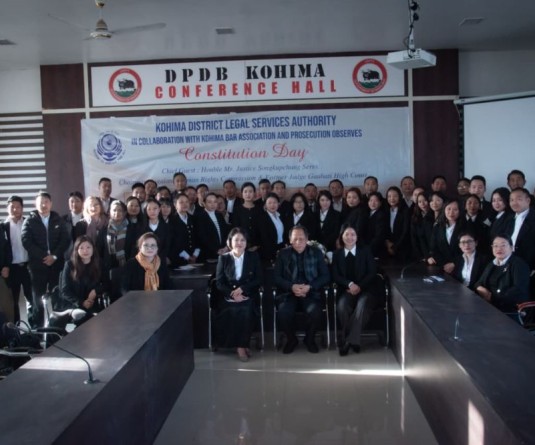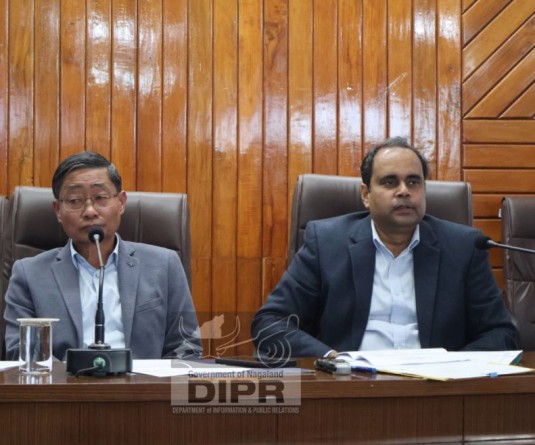
• 196 languages & dialects on the verge of extinction in India
• Caste system creeping into Naga society?
• Naga languages endangered
Morung Express News
Dimapur | March 19
Prof. Joga Singh, Professor of Linguistics at Punjab University, listed the negative impacts of English being used as a medium of education in lieu of mother tongues in schools in India.
According to the Linguistics professor, using English as a medium of education not only adversely affects the true growth of a child but also has social and political ramifications. Prof. Singh said due to wide circulation of English as medium of education in many schools throughout the country, 196 Indian languages and dialects are on the verge of extinction.
Prof. Singh was speaking on ‘Language and medium of education: excluding disparities, including diversities’ in the first session of the concluding day of the 3-day national seminar on ‘Impact of commercialization and communalization of Education in Naga society’ organized by All India Forum for Right to education (AIFRTE), at Patkai Christian College, Seithekiema, on Saturday.
The professor said a foreign language as a medium in schools tends to divide families as the child finds it difficult to communicate with her parents or grandparents and vice versa, since school language also becomes the first language of the child.
He was also of the opinion that children who do not get education in their mother tongue cannot become efficient administrators, teachers or doctors as they would not be able to effectively communicate with the grassroots people who form the majority of India’s population. “The knowledge you get from other mediums, you cannot take it back to your society,” he said.
Singh also hinted on the possibility of caste-like system creeping into Naga society between children who study in expensive private English medium schools and those in government schools.
On social and political ramifications, the Linguistics professor said Bangladesh (formerly East Pakistan) decided to severe itself from Pakistan since Pakistan insisted on Urdu as the official language whereas East Pakistan wanted Bengali also to be included as official language. He said of the 50 leading universities in Asia, Singapore and Hongkong top the list and universities in these countries teach in their own mother tongues.
“Mother tongue allows you to develop your linguistic abilities in a better way and these abilities can, in turn, be transferred to learning other languages,” Singh said.
In conclusion, Singh said the only way to have a common school system in India is to introduce respective mother tongues as medium of education in schools.
Dr. Mimi K Ezung, Associate Prof Department of Tenyidie, Nagaland University, speaking on ‘Communalization through language: The Nagaland Context,’ briefed on the classification of Naga languages - native language, societal language and pedagogical language. Highlighting facts on Naga languages, she noted how UNESCO has listed Naga languages among endangered languages. She raised the question of where the native Naga languages/dialects stand today in terms of development. She explained how Nagamese, the lingua franca, may climb up the social ladder and find itself a seat among native Naga languages.
Further, Dr. Ezung raised a thought provoking question of the policy of central Government to promote Nagamese in Nagaland rather than trying to discuss serious concerns of the State. She went on to add whether the promotion of Nagamese was a ploy to pose Nagamese as a threat so that an alternative, that is Hindi, be preferred by the native Nagas. Is this a case of communalism through language?





